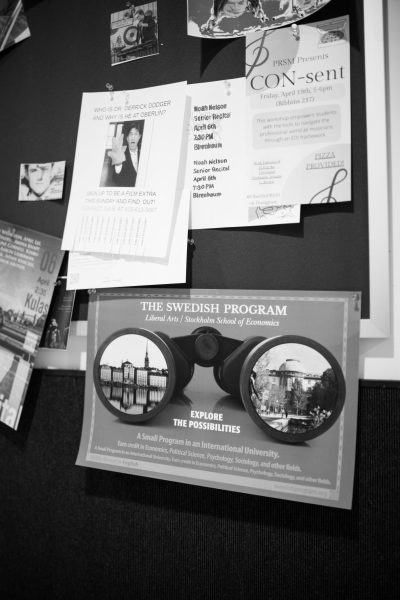NATO Expansion to Shift Balance of International Relations on World Stage
Russian President Vladimir Putin’s mission to restore lost glory poses a serious security threat in Eastern Europe and beyond. In May 2022, just months after Russia invaded Ukraine, Sweden and Finland moved to join NATO. If Putin truly does see himself taking up some historic mission of expansion, he would move beyond the current borders of Ukraine. Acceptance into the military alliance would end the two countries’ diplomatic position as non-aligned nations but is vital for European security in the foreseeable future.
Sweden and Finland have played a role on the world stage as neutral countries. In the wake of the Second World War, the United States and the Soviet Union emerged as great powers entangled in the Cold War. As a country that borders Russia, Finland was allowed to stay out of the Soviet fold and exist as a democracy as long as it remained neutral. The last thing Russia wanted was NATO members on its borders. When the Soviet Union fell, Finland developed a close relationship with NATO as an ally, but not a member. Today, with the threat of an aggressive Russia bringing troops westward, it was a logical step for Finland to join NATO fully. On April 4, Finland became an official member of NATO, doubling the border NATO has with Russia.
Finland intended to join “hand in hand” with Sweden, but Sweden’s entry has been stalled. Historically, Sweden has used its position as a non-aligned nation to take paths of action on the world stage that other nations could not consider due to their alliances. Sweden was the first Western nation to support African liberation movements, helping former Portuguese colonies in Africa attain independence. In the long term, joining NATO could compromise Sweden’s ability to take an independent path in foreign relations. Admittance into NATO is consensus-based, which means that Sweden will need the consent of every NATO member to join.
Turkey and Hungary are the two NATO members preventing Sweden’s ratification. Sweden has a history of taking Kurdish refugees, particularly political refugees. Turkey and Sweden have different definitions of Kurdish terrorists, leading Turkey to claim that Sweden has given refuge to terrorists and demanded their extradition. Sweden does not classify the group these Kurdish people belong to as a terrorist organization, and refuses to extradite these members. Sweden’s actions are characteristic of its foreign policy to date as a non-aligned nation. There is an African proverb, “When elephants fight, it is the grass that suffers.” In a world order characterized by great power conflicts, Sweden’s independence allowed them to pay attention to the grass. The Kurdish people are considered one of the largest ethnic populations without a homeland, and many of the nations they are spread across — including Iran, Iraq, Turkey, and Syria — are unstable and embroiled in conflict. Many are postcolonial nations that suffer from instability due to imperialism and conflicts between great powers. Sweden’s foreign policy to date is admirable and necessary on the world stage, but with the threat of Russia, European security has to take precedence for the foreseeable future.
I met with Eve Sandberg, professor of Politics, to ask her what she thinks of the recent expansion of NATO. She believes that the expansion of NATO is vital for the security of Finland and Sweden.
“Russia does not observe international norms of sovereignty and neutrality, so Finland is wise to join NATO,” Sandberg said. “NATO should allow Finland to join, even though Putin will use it to rail against the West.”
She also noted that Sweden would be a stronger addition to the alliance.
“Sweden would be a much stronger addition; they have a huge armaments industry,” Sandberg said. “To have [Sweden] committed to directly sell to NATO countries would be a good thing, as the U.S. has low levels of munitions at this point.”
In light of the Russian invasion of Ukraine, an expanded NATO is vital for European security, but it may come at a cost. The age of neutral countries seems to be coming to an end. Finland has become a NATO member, and Sweden is in the process of joining. Even Switzerland is forming a stronger defense relationship with NATO, as the Swiss defense minister recently joined a NATO meeting. Both countries will see changes in their foreign policy, as all of Europe probably will in light of the invasion. European countries seem to be prioritizing security and defense, and only time can tell what implications this will have on the diplomacy of traditionally neutral countries.


